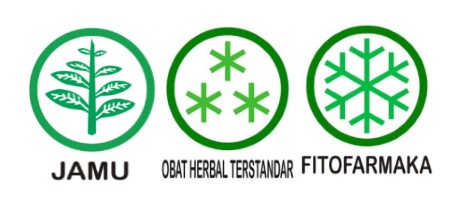HERBAL MEDICINE AND RULES OF CLAIM OF EFFICACY
30/06/2020 Views : 1649
NI LUH PUTU VIDYA PARAMITA
Author: Ni Luh Putu Vidya Paramita, S.Farm., M.Sc., Apt.
Email: vidya_paramita@unud.ac.id
https://fmipa.unud.ac.id/
https://www.unud.ac.id/
Indonesia is one of the countries listed to have a global infectious disease, namely COVID-19. This situation certainly requires the government of the Republic of Indonesia to work very hard in efforts to accelerate the handling of COVID-19. The President of the Republic of Indonesia instructed to utilize the potential of natural resources For handling COVID-19. One of the efforts to maintain health, cure and prevent disease during the emergency of COVID-19 is the use of traditional medicines.
Traditional Indonesian medicine is known as Jamu. Besides Jamu, there are 2 groups of Indonesian Natural Medicines, namely Standardized Herbal Medicine (OHT) and Fitofarmaka. These three classifications are given for herbal medicine produced in Indonesia. To distinguish between Jamu, OHT, and Fitofarmaka the public can recognize through the following logo. Products with this logo when circulated in Indonesia must obtain a distribution permit number (NIE), namely POM TR (Jamu), POM HT (OHT), and FF (Fitofarmaka) issued by BPOM.

In addition to products with these three logos, there are also many herbal products on the market in the form of packaged drinks such as tamarind turmeric (jamu kunyit asem), kencur rice (jamu beras kencur), and others that do not use this logo. This type of product is widely produced by home industries and can be grouped into food products that should have an NIE P-IRT issued by the Health Service (Dinas Kesehatan).
The need for traditional medicines is very high in the community to encourage an increase in the market for traditional medicine sales. But, there are still many Indonesian people who do not understand the regulation of traditional medicine. People still choose the wrong herbal products because over claim of herbal medicine. Over claim is an excessive claim against traditional medicine, especially herbal medicine without scientific evidence. Over claim could occurs in their packaging, advertisements, or user testimonials.
We need to know that, three classification of herbal medicines based on the rules of claim of efficacy are
1. Jamu = claim of efficacy is proven based on empirical data (it’s proven to be useful for more than 3 generations). The packaging must include the claim "traditionally used for ....."
2. OHT = Claims of efficacy proven scientifically/pre-clinically (it has been proven in experimental animals). The packaging includes the level of general evidence to medium.
3. Phytopharmaca = Claims of efficacy proven scientifically/preclinically and clinically (it has been proven in experimental animals and in humans). The packaging includes the level of proof of medium to high
An example that I can give is herbal medicine for people who have a history of high blood pressure. Because herbal medicines must not have claims of efficacy that begin with the word “medicine or are able to treat” even those on phytopharmaca products. So in one of the phytopharmaca products, Tensigard® claims that the benefits written on the packaging are able to reduce and stabilize blood pressure (there is no word of medicine or cure). So that people need to be careful and wise in choosing herbal medicines by looking at the marketing authorization and claim of efficacy that is conveyed.
Some summarize for the community in choosing herbal medicines are:
1. Make sure the herbal medicines you use are registered. Registered herbal medicines must have a POM TR/POM HT/FF registration code. For drinks/food with the food category the registration code is P-IRT. So if you find herbal medicines with the "jamu" logo, but the NIE is P-IRT, it’s means that the herbal medicine has not been registered with BPOM. The logos of Jamu, OHT and Fitofarmaka are only for herbal products registered with BPOM.
2. Use the “CEK Klik” application owned by BPOM to trace the legality of a product/medicine/herbal medicine
3. Not easy to believe in the claims of efficacy promoted. Claims efficacy for products that have been registered must follow the rules of efficacy claims guidelines.
4. Herbal medicine can not give fast results of efficacy. Be aware of the addition of drug chemicals if the effects are produced quickly.
References:
1. Peraturan Kepala Badan Pom Nomor: Hk.00.05.41.1384 Tentang Kriteria Dan Tata Laksana Pendaftaran Obat Tradisional, Obat Herbal Terstandar Dan Fitofarmaka
2. Keputusan Kepala Badan Pengawas Obat Dan Makanan Republik Indonesia Nomor Hk. 00.05.4.2411 Tentang Ketentuan Pokok Pengelompokan Dan Penandaan Obat Bahan Alam Indonesia
3. M. Djatmiko, Djoko Suhardjono, dan Agung Endro Nugroho, 2001, Pharmacological And Dosage Range Tests Of Tensigard® As A Hypotensive Phytopharmaca, Majalah Farmasi Indonesia, 12 (1), 33-43
